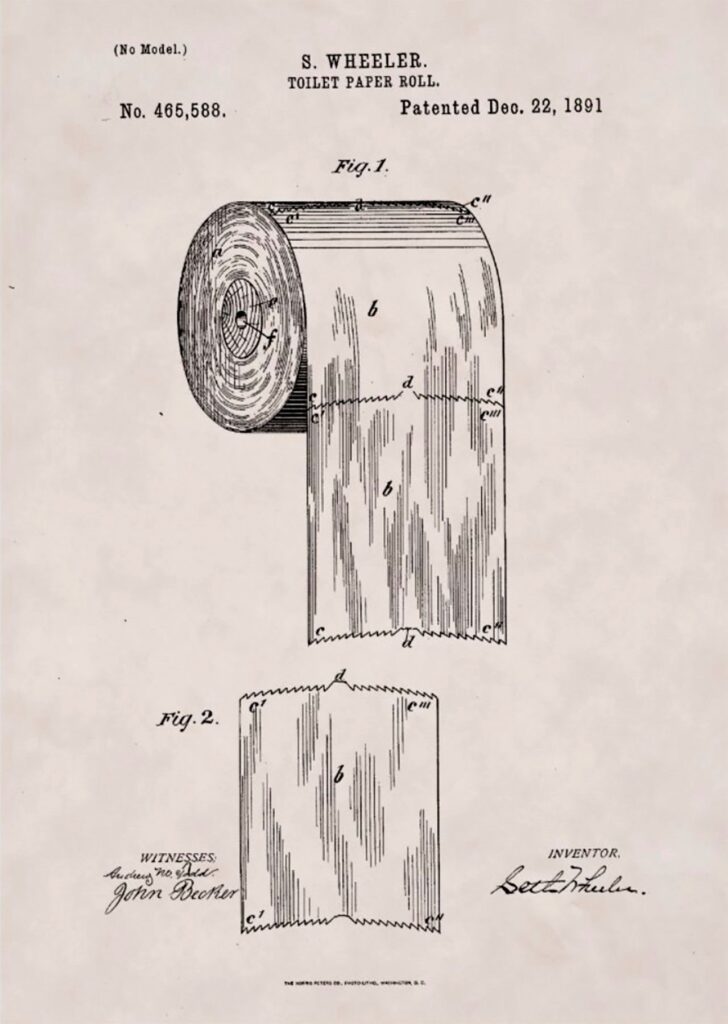
All the talk about toilet paper shortages and hoarding during the pandemic made me think about the sustainability of toilet paper. What brand of toilet paper should we use when we have flattened/squashed the curve and things return to normal? Which brand is the most sustainable for the planet? This is an important question. While the sustainability of toilet paper might not be on everyone’s mind right now, in normal times, it should be on our minds when shopping.
“Sustainability” is a term that has gotten a lot of traction recently in the commercial and industrial world. In environmental terms, it means “the avoidance of the depletion of natural resources in order to maintain an ecological balance” (Oxford English Dictionary). For environmentalists, the question is: What can we do in our lifetimes so that we give future generations the chance to live their best lives? With regard to toilet paper, can we use less of it? And can we choose a type that was manufactured efficiently and in a way that has less impact on the environment?
What can we do in our lifetimes so that we give future generations the chance to live their best lives?
There is a recent, startling report from the National Resources Defense Council titled “The Issue with Tissue: How Americans are Flushing Forests Down the Toilet.” It contains such sobering statistics as the United States consumes more toilet paper than any other country in the world at about 28 pounds or 141 toilet paper rolls annually per person. Americans account for only about 4% of the world’s population, but we account for about 20% of global tissue consumption. (There’s a joke in there somewhere that Americans might be more full of it than other nationalities.) The report goes on to grade several toilet paper companies based on their products’ use of recycled content, certification from sustainable organizations, and bleaching process. To make a long story short, the companies that use recycled materials come out ahead by far on sustainability over those that use 100% new materials. It turns out the mantra I learned in grade school, “Reduce, Reuse, and Recycle” still holds weight.
One way to reduce toilet paper consumption is to forgo it altogether and use a bidet. Several news articles tout the fact that more people were buying and installing bidets during the early days of toilet paper shortage. A USA Today article about the bidet trend reports that companies are trying to make the device part of a go-to sustainable toilet. The bidet can be an attachment to an ordinary toilet or a separate bathroom device. One bidet company called Tushy (I kid you not) sells bidet attachments. It claims that using a bidet is more sanitary and helps protect the environment. It also reduces toilet paper consumption by 75-100% and definitely promotes a green lifestyle. www.hellotushy.com. (PACPAW does not officially endorse this product.)
If you want to get technical, we can examine the manufacturing of toilet paper in terms of a life cycle analysis (LCA). An LCA explores a product or process from “cradle to grave,” covering a product’s life cycle from raw material through manufacturing, use, and disposal. One LCA from 2015 compares the manufacture of tissue paper in Poland from virgin pulp to manufacture from recycled waste paper. The analysis concludes that using waste paper is more environmentally friendly than using virgin pulp since processing waste paper uses less material and energy. It makes sense that it is more efficient to reuse or recycle a material rather than use energy to make a new one. Using recycled paper also reduces the consumption of forest timber virgin pulp and thus helps to conserve natural resources.
An additional good reason to choose from recycled sources is that they cause fewer greenhouse gas emissions. Greenhouse gases from virgin pulp are approximately 30% higher than from recycled waste paper.
The bottom line is that if you have not opted for a bidet and are still perusing the toilet paper aisle, you should think about sustainability and pick a roll that is made from recycled rather than new materials. In this way, you can take a small step toward giving future generations the chance to live their best lives.
By choosing a bidet or toilet paper made from recycled rather than new materials, you can take a small step toward giving future generations the chance to live their best lives.
Toby Chu is a Senior Environmental Analyst for Entergy.
